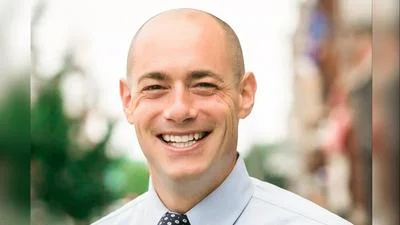Jenn Giroux | Twitter
Jenn Giroux | Twitter
Jenn Giroux is vying for the 27th House District on a platform of opposing racial COVID-19 policy and abortion.
The state primary was held on May 3 but those running for state legislative districts will have a separate primary, which is on Aug. 2. The census data used in the redistricting was delayed due to the COVID-19 pandemic. While lawmakers have been facing challenges in creating a new constitutional map and candidates are confused about which district they will be representing, voters on the other hand will also have some hurdles to clear such as the burden of proof that they are U.S. citizens. The cost of the second primary is also another concern.
“First of all, there is no question that they used the circumstances of the COVID situation to manipulate," Giroux said. "But takes Zucker money, which you [know,] no outside donations should be controlling elections, stuffing the ballot boxes. And I think it’s very encouraging that our legislature right now is trying to get on the ballot, that you have to be a U.S. citizen to vote."
Giroux filed a federal lawsuit saying she completed her paperwork in time to be on the ballot for the Aug. 2 GOP primary for the 27th House District, according to The Enquirer. Her case was rejected, then the Ohio Supreme Court allowed six Democrats back on the ballot. In the wake of this decision, Hamilton County Common Pleas Judge Robert Goering ruled Giroux should be on the ballot too. She is currently waiting for Republican Secretary of State Frank LaRose to direct the Hamilton County Board of Elections to put her on the ballot. LaRose did so for the six Democrats but was critical of the court’s decision.
“It's clear by now that these four justices in the majority are either ignorant of election law and administration or indifferent to the confusion they continue to create,” Giroux said.
Giroux will face fellow Republicans Lindsay Cole and Joe Murray in the primary in a district that encompasses Eastern Hamilton County and part of Cincinnati which now leans slightly Democratic. She is "grateful for Judge Goering’s decision to ensure that the voters of the 27th State House District will now have the opportunity to support a candidate for state representative with a proven track record in support of our Republican conservative issues,” Giroux said. What she is concerned about now is the added effort that people have to do to prove that they are qualified voters.
"Anybody that opposes someone having to show an I.D., showing that you’re a citizen of the United States to vote, that doesn’t want us to have any borders at all, there’s no question in my opinion that the Biden administration, that the left liberals in this country, have seized upon power because of people obeying the mandates and that the government overreach that happened and reached down and control, trying to control the lives of people," Giroux said. "Our small business almost went under. Many, many businesses did go under. And I just saw the other day, I read an article that said 50% of restaurants right now are vulnerable to closing because of the impact of what happened or COVID. And, you know, there’s so many industries that were affected.”
The Biden Justice Department is suing Arizona over a new election integrity law, saying that the law is a “textbook violation” of federal law. HB 2492 was signed by Gov. Doug Ducey in March, and it requires federal election voters or anyone voting by mail in any election to show proof of citizenship. This bill was passed in the wake of allegations of voter fraud in the state during the 2020 election. In 2013, the Supreme Court ruled in Arizona v. Inter Tribal Council of Arizona that “the state could not require anyone who used the federal government’s voter registration application to provide proof of citizenship when they registered.”
This has created a group of about 31,500 voters in Arizona who are only allowed to vote in federal elections. Arizona legislators argued the ruling only applies to Congressional elections, hence the new law. Kristen Clarke, head of the DOJ civil rights division said, “Arizona is a repeat offender when it comes to attempts to make it harder to register to vote. HB 2492 is in direct with the 2013 U.S. Supreme Court decision.” Some people speculate that this law was written in an effort to overturn the 2013 decision, especially since the make-up of the Court has changed, The Guardian reported.
In 2020, millions of dollars in private grants, mainly from Mark Zuckerberg, funded elections. In response, HB 2569 passed the Arizona House in a party line vote. According to NPR, “The legislation would ban election officials at all levels of government — city, county and state — from receiving private funds to help pay for any aspect of election operations, including voter registration.” Lawmakers are saying that elections should be free from all kinds of outside interference. They are also concerned that even the perception of Zuckerberg’s influence is unhealthy for free and fair elections. Backers of the election grants touted the fact that they gave grants to both heavily red and heavily blue states, and they argue that their grants increased voter turnout across the board. However, lawmakers still have concerns that such big money can corrupt election officials.
Giroux is a small business owner and nurse. She is a strong pro-life advocate and wants to outlaw abortion in Ohio. She is also a critic of much of the response to COVID-19, especially separating dying people from their families. She saw this trauma firsthand as a nurse. She also said the government overreached in response to COVID-19 and that election security suffered as well, according to Cincy Reporter.




 Alerts Sign-up
Alerts Sign-up